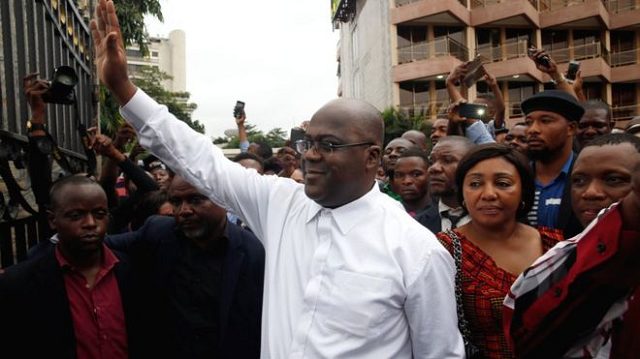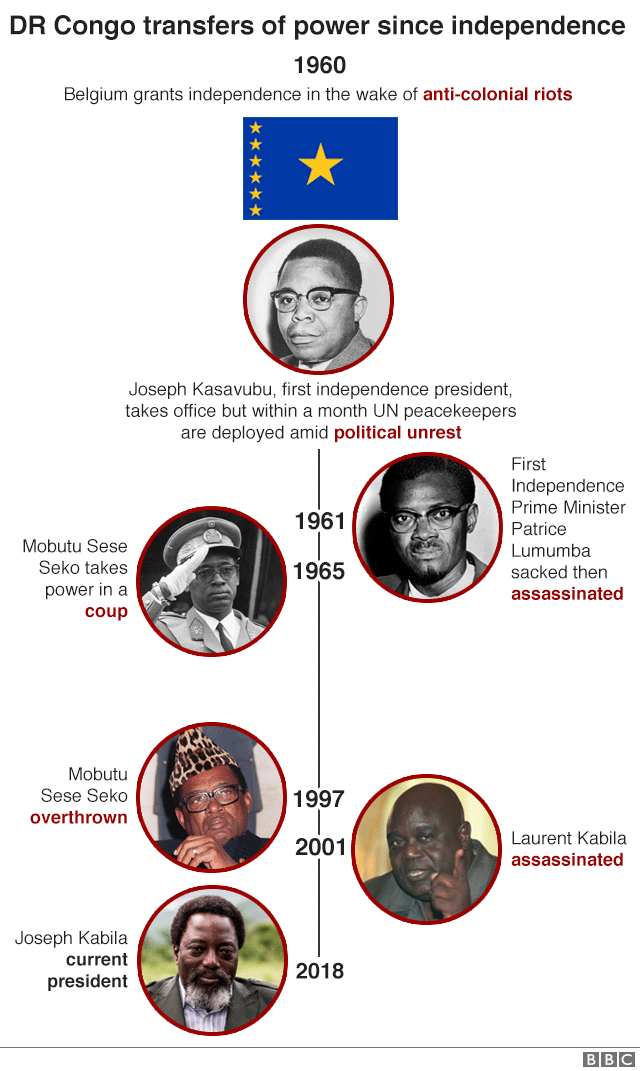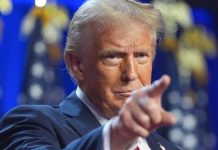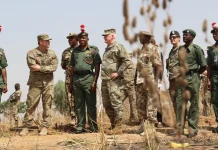The constitutional court in the Democratic Republic of Congo has upheld the victory of opposition presidential candidate Felix Tshisekedi.
The court rejected an appeal by Martin Fayulu, another opposition contender in the 30 December poll.
Mr Fayulu argued that Mr Tshisekedi had made a power-sharing deal with outgoing President Joseph Kabila. Mr Tshisekedi’s team denies this.
Despite the court ruling, Mr Fayulu said he was a “legitimate” president.
Mr Fayulu also urged the international community not to recognise the official election result.
What did the court say?
The court said Mr Fayulu had failed to prove that the election commission had announced false results.
It went on to declare “Felix Tshisekedi president of the Democratic Republic of Congo by simple majority”.
He is now expected to be sworn in within 10 days.
Violence has always accompanied the transfer of power from one leader to another.
But the confirmation of the official result could create the first orderly transfer of power since DR Congo’s independence from Belgium in 1960.
What about the 30 December poll?
The electoral commission earlier announced that Mr Tshisekedi had received 38.5% of the vote, compared with 34.7% for Mr Fayulu.
Ruling coalition candidate Emmanuel Shadary took 23.8%.
However, Mr Fayulu had argued that Mr Tshisekedi had stuck a deal with Mr Kabila, who has been in office for 18 years.
Mr Kabila was constitutionally ineligible to run for a third term.
The election should have taken place two years ago but was repeatedly postponed because of logistical problems, officials said.
There were a series of delays on voting day. The failure of new electronic voting machines in some polling stations was one of the challenges.
The run-up to the poll was marred by violence and controversy over the decision to delay voting in some areas for health and security reasons – in effect excluding some 1.26 million out of an electorate of nearly 40 million.
What did others say?
The official figures have been disputed by the influential Catholic Church which says it deployed 40,000 election monitors across the country.
International experts based in the US, and the French and German governments, have also raised doubts.












